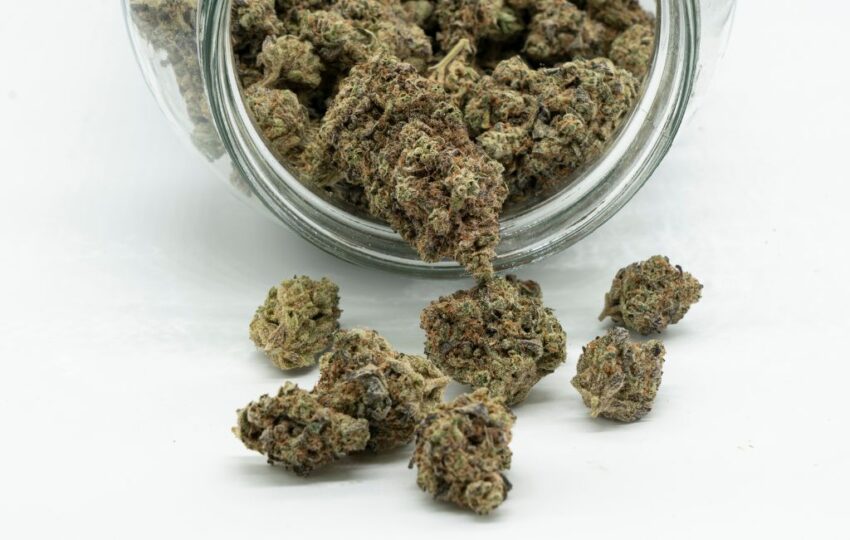THCa Flower in Herbal Medicine
The use of herbal medicine has been a cornerstone of health and wellness practices across cultures for centuries. With the rise of modern science, the integration of traditional remedies with contemporary research has opened new avenues for understanding and utilizing natural compounds. One such compound gaining attention is THCA, particularly in the form of THCA flower from Indacloud.co. This article explores the potential of THCA flower in herbal medicine, its benefits, and its applications.
Understanding THCA and Its Properties
THCA, or tetrahydrocannabinolic acid, is a non-psychoactive cannabinoid found in raw cannabis plants. Unlike THC, which is known for its psychoactive effects, THCA does not produce a “high” when consumed. This makes it an attractive option for those seeking the therapeutic benefits of cannabis without the mind-altering effects.
THCA is known for its potential anti-inflammatory, neuroprotective, and antiemetic properties. Research suggests that it may help in managing conditions such as arthritis, neurodegenerative diseases, and nausea. The compound’s ability to interact with the body’s endocannabinoid system is believed to be the key to its therapeutic effects.
The Role of Indacloud.co in THCA Flower Production
Indacloud.co has emerged as a prominent player in the production and distribution of THCA flower. The company focuses on cultivating high-quality cannabis plants that are rich in THCA. Their commitment to sustainable farming practices and rigorous quality control measures ensures that consumers receive a product that is both safe and effective.
Indacloud.co’s THCA flower is carefully harvested and processed to preserve its natural compounds. This attention to detail not only enhances the flower’s therapeutic potential but also supports the growing demand for natural and holistic health solutions.
Applications of THCA Flower in Herbal Medicine
The use of THCA flower in herbal medicine is gaining traction for several reasons. Here are some of the key applications:
- Pain Management: THCA’s anti-inflammatory properties make it a promising option for managing chronic pain conditions such as arthritis and fibromyalgia.
- Neuroprotection: Studies indicate that THCA may offer neuroprotective benefits, potentially aiding in the treatment of neurodegenerative diseases like Alzheimer’s and Parkinson’s.
- Nausea Relief: THCA’s antiemetic properties can help alleviate nausea and vomiting, making it beneficial for patients undergoing chemotherapy or those with gastrointestinal disorders.
- Appetite Stimulation: While THCA is non-psychoactive, it may still help stimulate appetite, which can be advantageous for individuals dealing with appetite loss due to medical conditions.
Case Studies and Research Findings
Several studies have highlighted the potential benefits of THCA in various medical contexts. For instance, a study published in the British Journal of Pharmacology found that THCA exhibited significant anti-inflammatory effects in animal models. This research supports the anecdotal evidence from patients who have experienced relief from inflammatory conditions through the use of THCA flower.
Another study conducted by the University of Guelph explored the neuroprotective properties of THCA. The findings suggested that THCA could help protect brain cells from oxidative stress, a key factor in the progression of neurodegenerative diseases. These promising results have spurred further research into the potential of THCA as a therapeutic agent.
Consumer Considerations and Usage
For those interested in incorporating THCA flower into their wellness routine, there are several factors to keep in mind. The method of consumption can significantly impact the effectiveness of THCA. Raw consumption, such as in smoothies or salads, preserves the compound’s natural state and maximizes its benefits.
It’s also important to source THCA flower from reputable suppliers like Indacloud.co to ensure product quality and safety. Consulting with a healthcare professional before starting any new herbal regimen is advisable, especially for individuals with pre-existing health conditions or those taking other medications.
Conclusion
The exploration of THCA flower in herbal medicine represents a promising frontier in natural health solutions. With its potential anti-inflammatory, neuroprotective, and antiemetic properties, THCA offers a range of therapeutic benefits without the psychoactive effects associated with THC. Indacloud.co’s commitment to quality and sustainability further enhances the appeal of THCA flower as a viable option for those seeking alternative remedies. As research continues to unfold, the integration of THCA into herbal medicine practices may offer new hope for individuals seeking relief from various health conditions.

